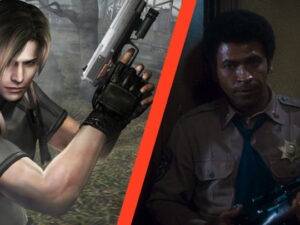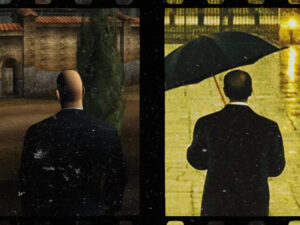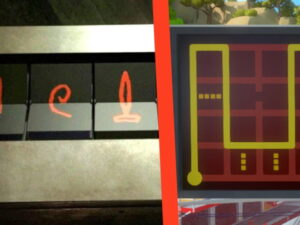Cut Scenes is Josh Wise’s regular column on the intersection between films and video games. This week, it’s Abzû vs. Fantasia 2000.
Fantasia 2000 was made under the stewardship of Walt Disney’s nephew Roy, and it was bequest to him as a film of some importance. His uncle wove Fantasia together with as much innovation as he did passion: he married Disney’s enthralling animation with classical music, and pioneered a new sound process – a 64-speaker set-up dubbed ‘Fantasound,’ the first example of surround-sound in cinema.
Roy crafted the sequel with no shortage of innovation either: at 75 minutes it was one of the first feature-length IMAX films, and its blend of CGI and traditional animation was novel. Matt Nava, creative director of Abzû at Giant Squid Studios, developed the game as a love-letter to the work of Jacques Cousteau and a monument to his own oceanic passion, but Fantasia 2000’s influence can be keenly felt.
The two share a similar structure: Abzû a string of contiguous vignettes, bridged by caves and passageways, set to a dynamic orchestral score, Fantasia 2000 a program of classical music pieces set to accompanying animation, courtesy of the top-flight talent at Disney. The most memorable scene in Abzû, the blue whales scene, is a shimmering echo of Ottorino Respighi’s ‘The Pines of Rome,’ as illustrated by Hendel Butoy for Fantasia.
https://www.youtube.com/watch?v=l5GfJjxsMYs
‘The Pines of Rome’ sees a procession of whales emerge from the ice caverns and take to the skies. Early in the piece, at 0:19, pale blades of light pierce the water downwards as a whale frolics in the deep, turning on its axis; at 0:46 a whale lets off water from its blowhole like a dirigible letting off ballast. At 1:28, the camera banks hard right like an airship, tilting before levelling-off.
Fork lightning splits the frame at 2:49 as the leviathan fleet enters a storm; pregnant clouds, filled with absinthe-green light, flash with booms of sheet lightning, revealing the shadows of the armada in glimpses. After rising up through the cloud bank, the creatures breach the waters of the atmosphere and gambol above the surface into the stars. It’s as if they become constellations.
It’s a potent image, and one that speaks to its theme: the pollution of the oceans and the ascension of these gentle creatures, not into the heavens, but into memory, like long-dead stars. There is, in Fantasia 2000, a strong ecological message. One of the other pieces, Stravinsky’s ‘Firebird Suite’, seems a damning indictment of de-forestation: a naiad figure soars above a desolate wild of blackened tree trunks and frozen wastes, nourishing the soil and sculpting flowers from the earth.
Abzû shares in this idea, Nava instilling a strong core of environmental preservation into the game. Chasms of black water lie in wait to be rejuvenated by your diver, releasing vibrant colour and resplendent light.
What both scenes touch on is the duality of the water. At 1:01 in the Fantasia clip, the whales breach the surface and rise into the air like planes during take-off. The light running through the water is now reflected in the air – an aurora of iridescent greens and violets dances across the night sky, suggesting the air itself is water. In Abzû’s dark trenches, you see at the bottom a new water, coloured bruised purple. This motif, of water upon water, of water as air, persists throughout – the image adorns the game’s front cover.
Nava breaks from what was, up to that point, a hands-off game, taking directorial liberties. Here, the camera shifts to a side on perspective, framing in wide-shot the entire school of whales just as they are framed in Fantasia.
As the blue whales cross paths with a school of humpbacks, a shoal of fish twists upwards towards you before the gape of a blue whale’s mouth threatens to close around you, missing you by mere feet. All the while you are pulled down, down, down; diffuse light ebbs away as cobalt deepens to ultramarine. The whales are guiding you to where you must go: the murky, black chasm with the new water below.
Both scenes have a narrative quality, the sense of a journey, only they run in opposite directions. Fantasia’s is a story of joyful ascension, Abzû’s one of responsibility and purpose. While Fantasia’s whales escape to the stars, it is just that: an escape. In Abzû, these creatures are solemn custodians of the deep, leading you in your mission of renewal. They haven’t the fantastic magic of Disney’s sea gods, able to leave us; instead, relying on us, they wait in the chambers of the sea.












